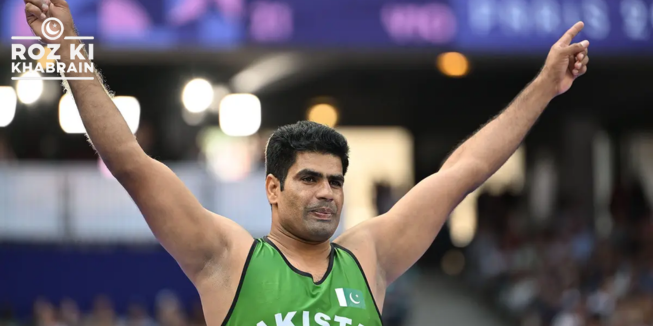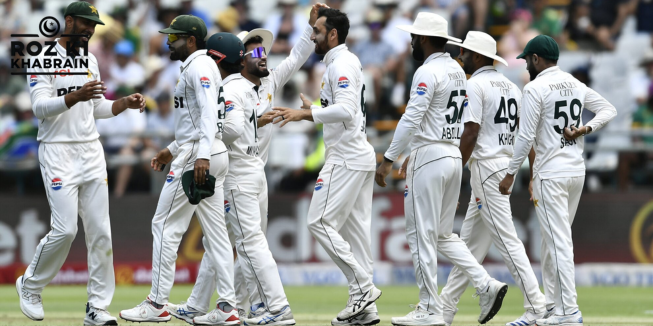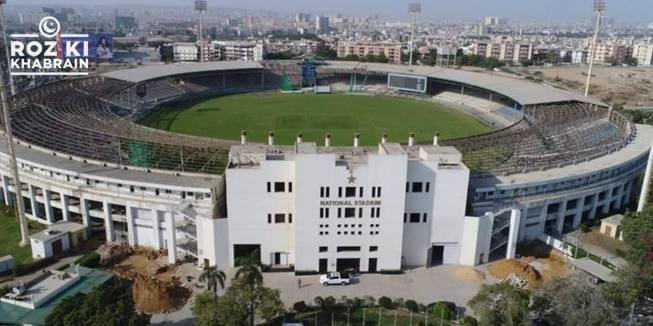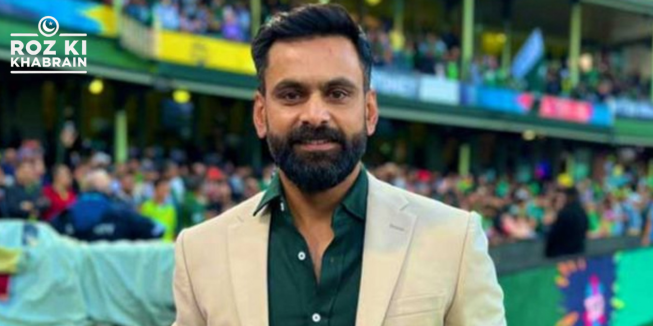Arshad Nadeem’s historic javelin throw soared through the air for just a few seconds, yet it encapsulated the hopes and dreams of 240 million people. He has secured a monumental victory for Pakistan by winning the nation’s first-ever individual Olympic Gold Medal, and more importantly, he has created a legendary Olympic narrative to inspire future generations of Pakistani children.
“There was once a boy from a small village in Punjab who decided to pursue his passion for the sport… not realizing that he would change the course of history in the process. For the first time in ages, a nation burdened by despair dared to dream…”
This is the tale that millions will grow up hearing—a story of resilience, hard work, competition, and friendship. A story of unity across borders, overcoming adversity, and instilling pride in being Pakistani.
While captivated by this young man’s journey, children may pause the storytelling to question why a nation of millions had to wait 40 years to achieve an Olympic medal.
As we recognize and celebrate Arshad Nadeem’s dedication, consistency, and excellence in his sport, we must be cautious in narrating the story of a man who demonstrated that desi ghee and a mother’s prayers can surpass access to top-notch training and equipment. This version of his story risks absolving the state and sports governing bodies of their fundamental responsibilities toward athletes and sports development.
While we embrace the humble and relatable Nadeem, grateful for the hope he embodies in challenging times, we should also question the officials in charge about why there aren’t more athletes like Arshad Nadeem. His success, along with that of other Pakistani athletes, stems from their strong work ethic, courage, and passion for their sport, despite inadequate conditions and minimal financial support.
The country has produced talented young prodigies and self-made athletes. Female champions like squash players Maria Toorpakai Wazir and Noorena Shams, as well as karate athletes Kulsoom and Nargis Hazara, forged their paths in environments where safe sports facilities and quality training for women were scarce. When Olympian swimmer Kiran Khan failed to qualify during the heats at the London Olympics, we critiqued her abilities without considering the lack of swimming opportunities for Pakistani women.
The Pakistan Olympic Association’s social media highlights that this year’s Olympic swimmers “have been training abroad, managing their training voluntarily, without public funding.” Instead of questioning why these athletes must finance their own training, we praise their out-of-pocket expenses, again letting the state off the hook for its duty to nurture talent.
As we celebrate Arshad Nadeem’s achievements, let’s not overlook the many others inspired to follow in his footsteps—motivated Pakistani boys and girls asking, “How can I become the next Arshad Nadeem?”
This moment in history is crucial for raising these significant questions. Thanks to Arshad’s miraculous success in Paris, there is renewed focus on sports from the state and policymakers. Reports indicate that the prime minister has announced a sports endowment fund of Rs. 1 billion, and both the Sindh and Punjab governments have pledged to establish athletics academies.
While these announcements are encouraging, it’s essential not to be sidetracked by short-term commitments that may or may not materialize. We must focus on channeling this newfound momentum into meaningful policy changes to transform the sporting culture in the country, ensuring we don’t wait another 40 years for our next Olympic gold medal.
To begin with, we must guarantee equitable and inclusive access to sports facilities for all children. A persistent lack of public investment in developing sports infrastructure at schools has left millions of children without opportunities to engage in sports and develop essential motor skills needed for athletic success later in life.
Moreover, the problem extends beyond the absence of facilities; it also involves mismanagement. Many existing sports infrastructures have become unusable due to encroachments or inadequate maintenance. Community ownership and participation are vital; a more effective approach would be to foster public-private partnerships to manage sports facilities.
A fundamental change is necessary to establish a progressive and comprehensive sports policy. Since sports is a devolved matter, provincial sports and education ministries should either merge or work closely together, increasing their annual budget allocations for grassroots sports, supported by structured and robust coaching and physical education programs in all public schools.
It is also time to reform and regulate the various sports federations and associations in the country. Many of these organizations have devolved into fiefdoms for retired bureaucrats and desperately need restructuring.
Coaching, nutrition, and the emotional well-being of athletes have all become specialized fields that require serious attention. The right government investment should focus on developing impactful coaching programs that engage young people and create a pool of highly trained, professional sports coaches.
Finally, and perhaps most importantly, no country can excel in sports without providing equal opportunities to women and girls. We must ensure inclusive and culturally appropriate sports facilities for all women and girls in Pakistan. Women’s sports should receive the same attention and resources as men’s sports, which can only be achieved through intentional efforts and investments in female sports development.
Arshad Nadeem has done his part and deserves to be celebrated for the glory he has brought to the nation. Now it’s time for the state to fulfill its responsibilities.




